Jack Hale of FEniCS Project was kind enough to share his summary of the recent 2017 FEniCS conference, for which NumFOCUS provided some travel funds. Read on below!

- Wietse Boon’s (Best PhD, University of Oslo, Norway) presentation on compatible finite element discretisation spaces for mixed dimensional elasticity problems. These mathematical developments will allow accurate simulation of complex phenomena like the mechanical response of carbon nanotubes embedded in a rubber matrix.
- Carl Lundholm’s (Runner-up Best PhD, Chalmers, Sweden) live demonstration of solving Poisson’s equation on the augmented reality Microsoft Hololens device. This technology can be used to help workers in hazardous environments better understand the distribution of toxic chemicals in the air by overlaying the solution of a model on the real environment in 3D.
- Johannes Neumann’s (Best postdoc, Weierstrass Institute for Applied Analysis and Stochastics, Germany) presentation on topology optimisation under uncertainty. This formulation can be used to design efficient and lightweight structures in aircraft subject to rare event scenarios.
- Sebastian Mitusch and Simon Wolfgang Funke’s (Best poster, Simula Research Laboratory, Norway) poster on fenics-adjoint, a new implementation of the Wilkinson Prize winning dolfin-adjoint software. This software automatically calculates adjoint models, which can be used for a huge variety of purposes, from assimilating real data into global weather models, to understanding the errors in a numerical simulation.
NumFOCUS provided funding for two attendees, Johannes Neumann and Hernán Mella Lobos, to join us at the FEniCS Conference. We had six applications for travel funding. Applicants were selected on a combination of service to the FEniCS community and need for financial support.
- Hernán has answered 80 questions on the FEniCS Q&A forum and has limited access to travel funds in Chile. Hernán will be contributing an open-source version of his code for mimicking infinite domains in wave propagation problems, and continuing his good work on the FEniCS Q&A forum.
- Johannes has recently finished his postdoctoral position at WIAS in Berlin and no longer had access to internal funding for travel. He is widely recognised in the community for his excellent work on uncertainty quantification using FEniCS. He won the prize for best postdoctoral presentation, a difficult feat given the standard of the talks! Johannes will continue to work on improving the uncertainty quantification ecosystem built around FEniCS, which seems like a real growth area in the last few years.
NumFOCUS also provided support through Google Summer of Code travel grants for Ivan Yaschuk and Michal Habera to come to the conference. All of the project mentors also attended the conference. Meeting face-to-face was invaluable to gain mutual understanding, but overall just a lot of fun! Both Ivan and Michal passed their first GSoC assessment with flying colours.
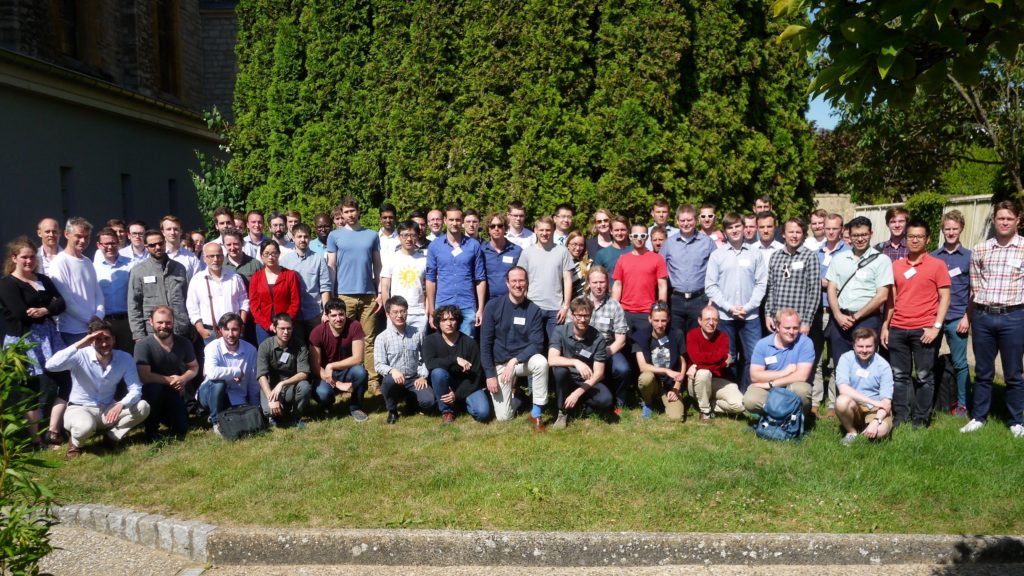
Group photo.
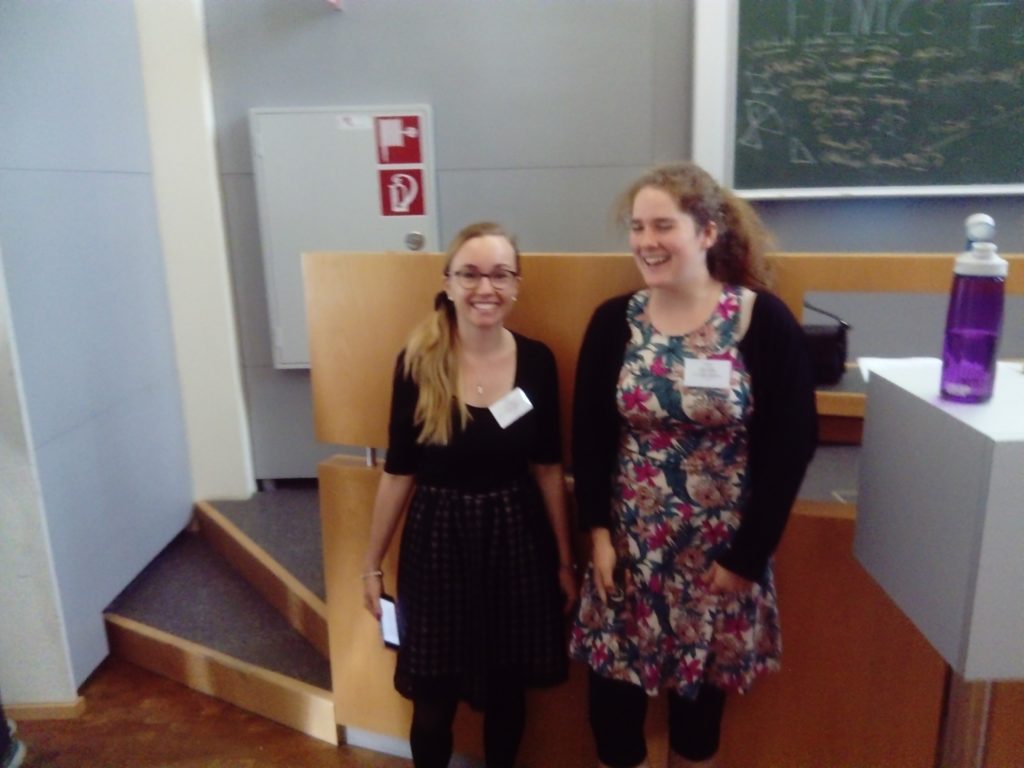
Speaker Cecile Diversion and Chair Ettie Unwin before Cecile’s talk on her plans for her postdoctoral position at Simula Laboratory Norway with Marie Rognes.
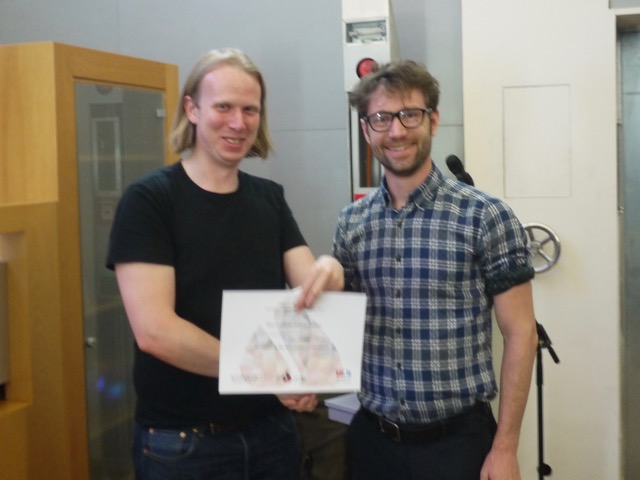
Right: Simon Funke receiving award for best poster presentation (co-authored with Sebastian Mitusch).
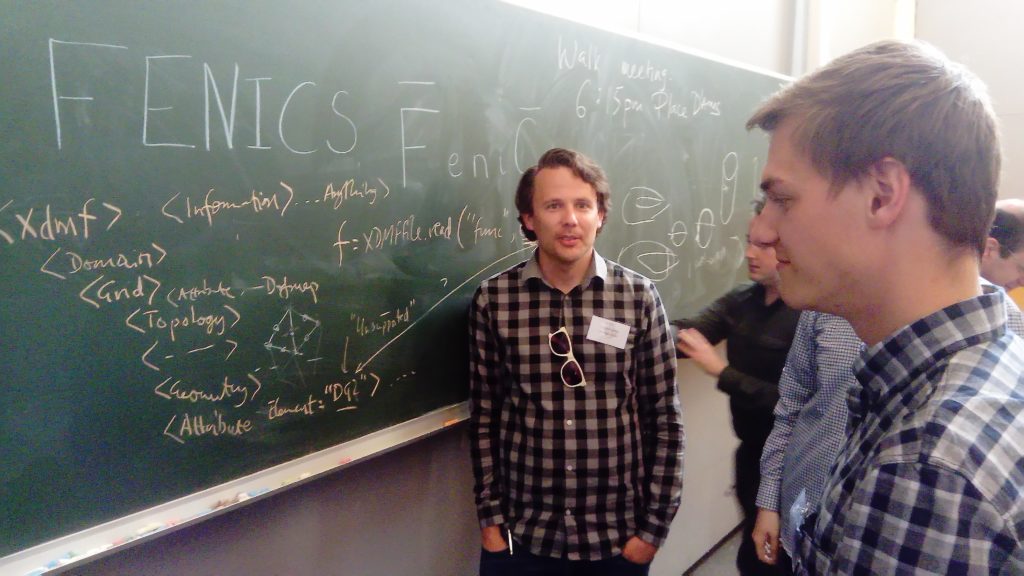
Tormod Landet and Michal Habera talking about his Google Summer of Code work on improved parallel file output in FEniCS.
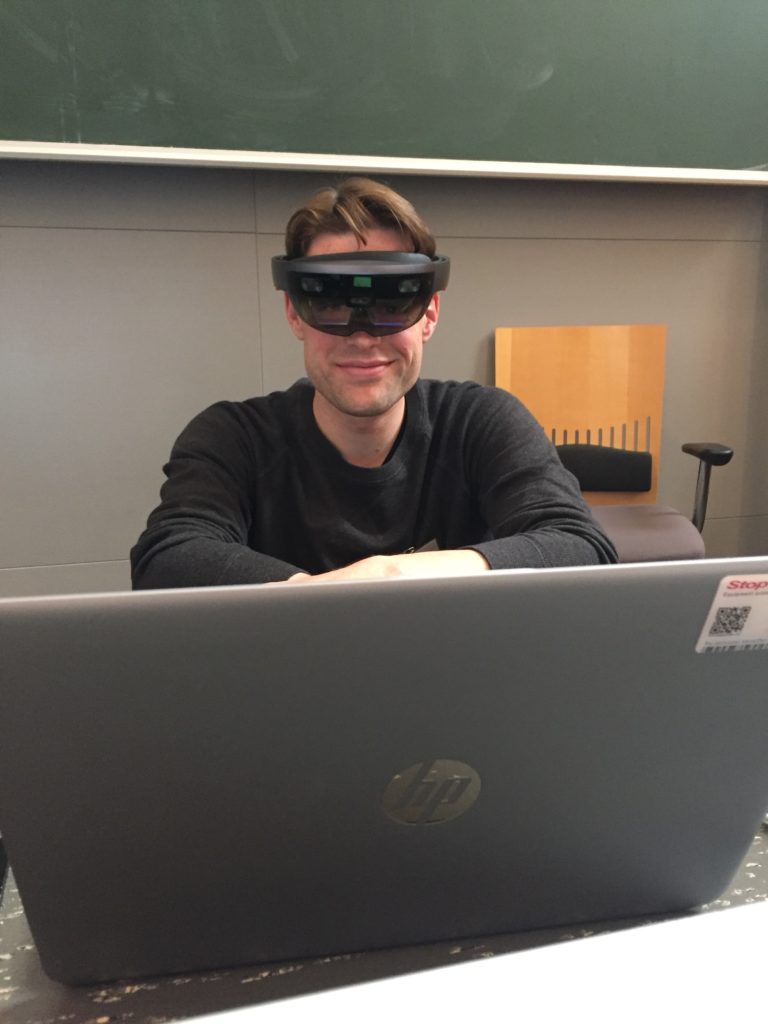
Carl Lundholm wearing the Microsoft Hololens device before his live demonstration. It’s hard to get an impression of how cool this is without trying it! Carl gave me a demonstration after the conference finished and it was very impressive.
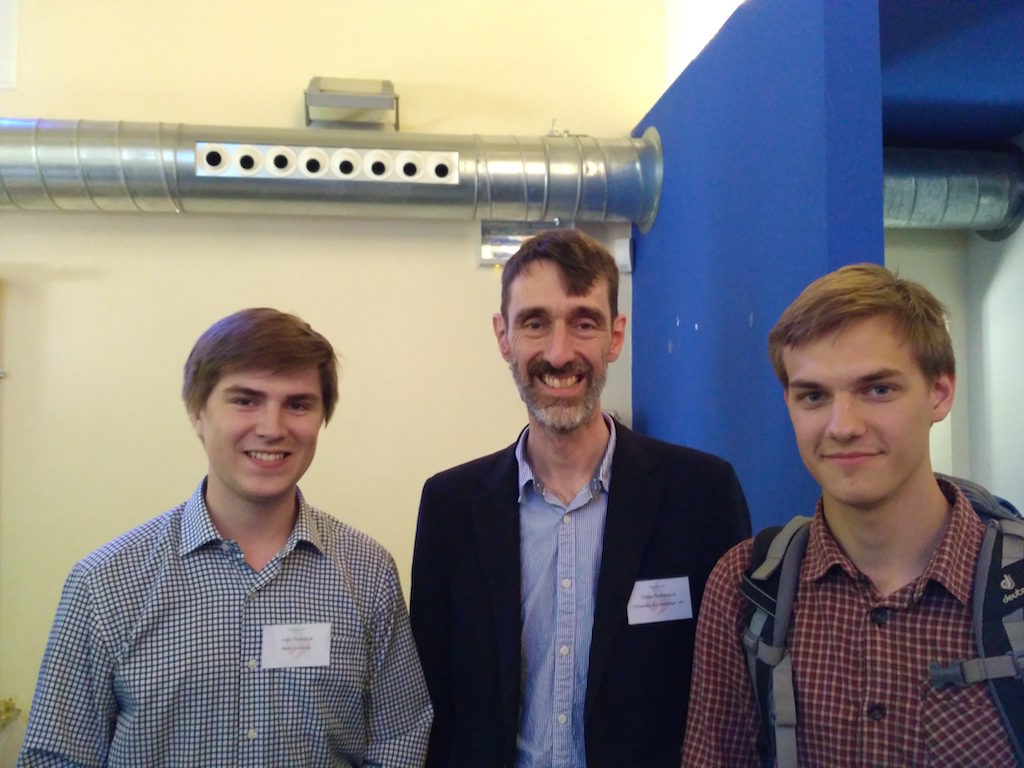
Ivan Yaschuk (GSoC student), Chris Richardson (Mentor) and Michal Habera (GSoC student)
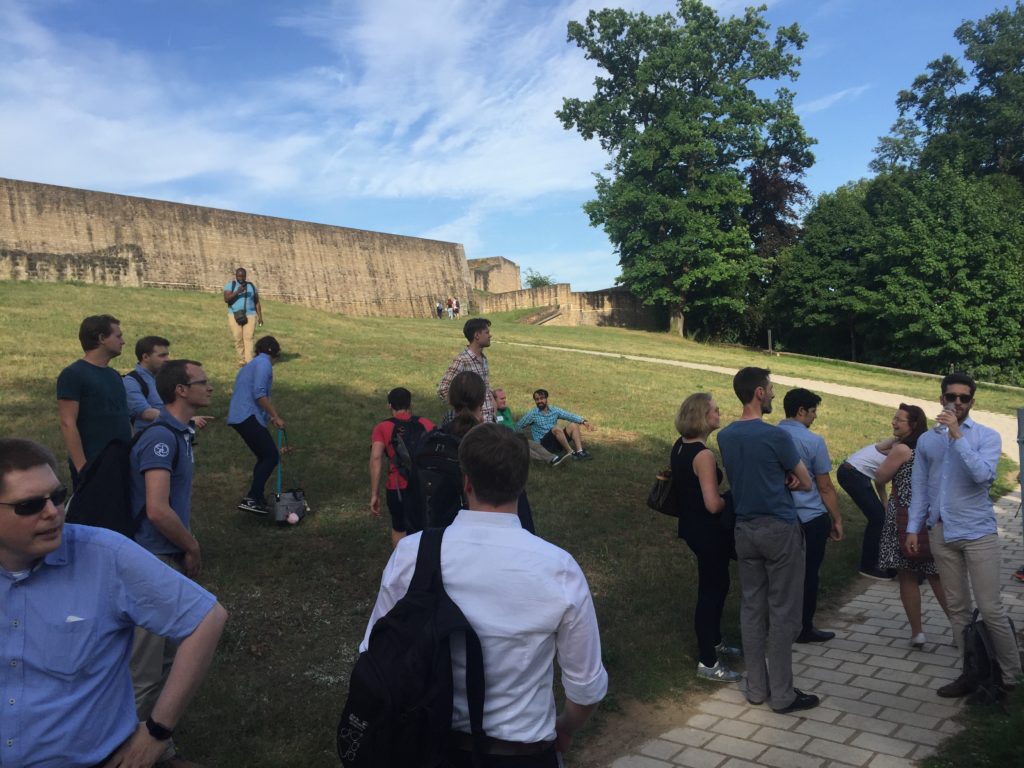
Pretty much every participant walked to dinner through the fortifications of Luxembourg City.
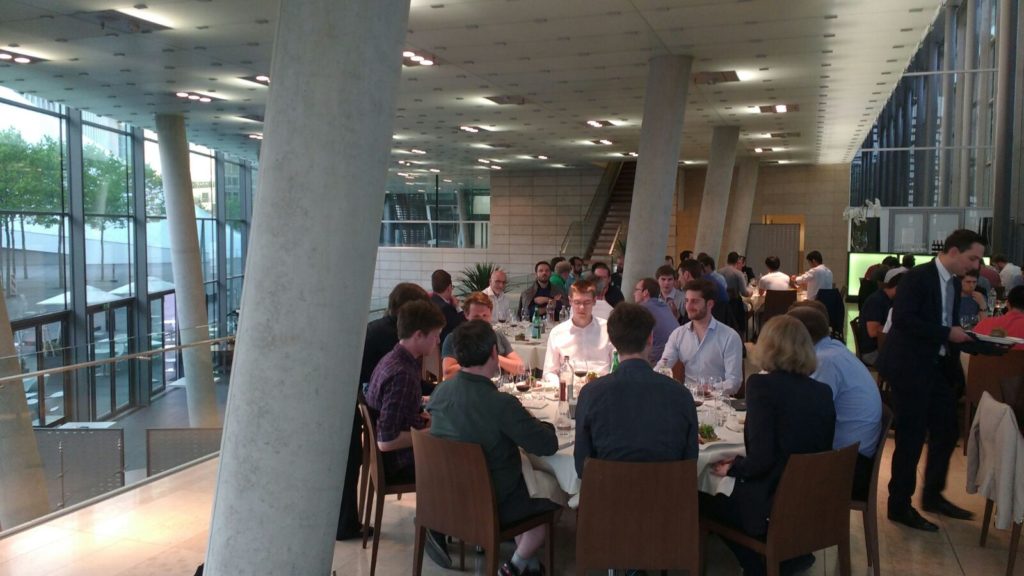
Enjoying our dinner at La Table du Belvedere in the financial district Kirchberg of Luxembourg City.
—
To get started as a FEniCS contributor, click here.
To make a donation to support FEniCS, click here.
